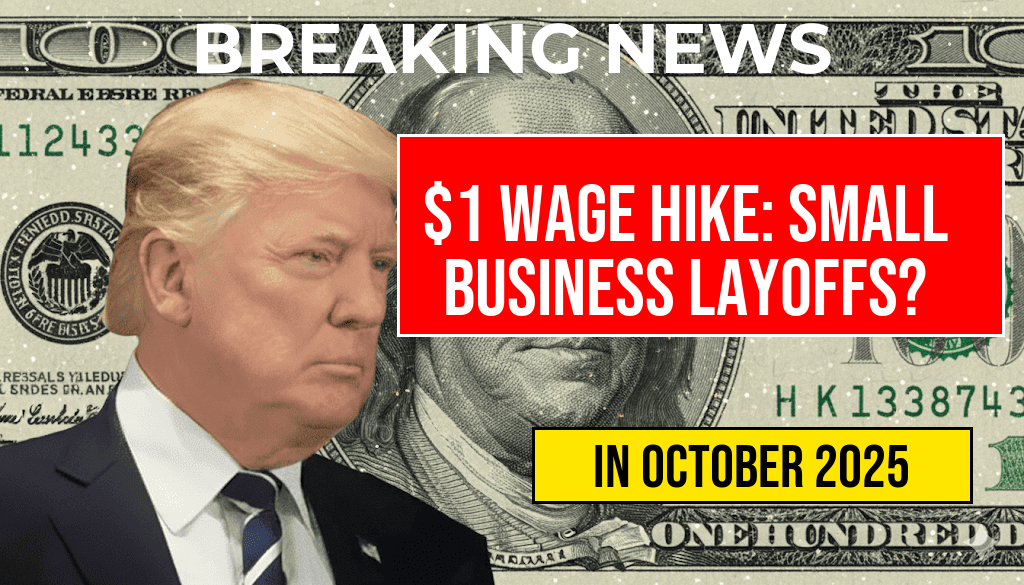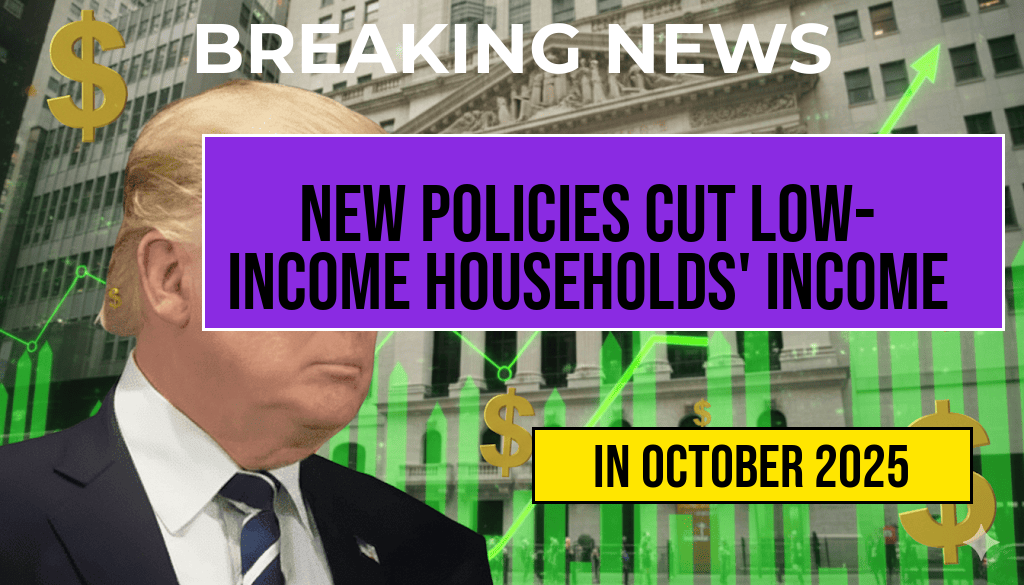As discussions surrounding wage increases continue to dominate economic discourse, the prospect of a $1 wage hike is raising concerns among small business owners across the United States. Advocates argue that increasing the minimum wage is essential for improving the living standards of workers, while critics warn that such measures may lead to job losses, particularly in small businesses that operate on thin margins. Recent studies suggest that while a wage increase could benefit employees financially, it might also pressure small companies to reconsider their staffing strategies, potentially resulting in layoffs or reduced hiring. This article explores the implications of a $1 wage increase on small businesses and the broader economy.
Understanding the Impact of Wage Increases
The debate over wage increases often centers on their potential effects on employment levels. According to a report from the Forbes Business Council, while some small businesses may struggle to accommodate a wage increase, others may find that paying higher wages leads to increased employee satisfaction and retention.
Economic Context
The current economic landscape features a tight labor market, with many industries competing for talent. As inflation continues to rise, workers are increasingly advocating for higher wages to keep pace with the cost of living. This has prompted policymakers to consider wage increases as a viable solution. However, the implications for small businesses, which employ nearly half of the American workforce, remain uncertain.
Potential Consequences for Small Businesses
- Increased Labor Costs: A $1 increase in wages translates to higher operational costs for small businesses. For many, this could mean reevaluating budgets and potentially cutting back on hours or personnel.
- Price Adjustments: Some businesses may respond to increased labor costs by raising prices on goods and services, which could affect sales and customer retention.
- Automation and Technology: In response to higher wages, small businesses may look to automate certain tasks, which could further reduce the need for a large workforce.
Case Studies and Research Findings
Research conducted by the National Bureau of Economic Research (NBER) shows mixed results regarding minimum wage increases and employment levels. Their studies indicate that while some small businesses may reduce staff, others may not experience significant layoffs. The net effect often depends on the specific industry and the local economic environment.
| Study | Findings | Industry Focus |
|---|---|---|
| NBER Study 2021 | Minimal impact on employment; some layoffs observed | Retail and Food Service |
| UC Berkeley Labor Center | Wage increase leads to improved employee retention | Service Sector |
| MIT Economics Department | Small businesses adapt through automation | Manufacturing |
What Business Owners Are Saying
Small business owners express a variety of concerns regarding the prospect of a $1 wage increase. For instance, Maria Gonzalez, owner of a local café in Chicago, states, “While I want to pay my employees fairly, a wage hike could mean I have to reduce my staff or cut hours, which is heartbreaking.” On the other hand, James Parker, who runs a tech startup in San Francisco, believes that paying competitive wages is crucial for attracting skilled talent and fostering a positive work environment.
Alternatives to Layoffs
To mitigate the potential negative impacts of wage increases, small businesses might explore several strategies:
- Streamlining Operations: Improving efficiency through better management practices can help offset increased labor costs.
- Flexible Staffing: Utilizing part-time or seasonal workers can provide the necessary workforce without the financial burden of full-time salaries.
- Community Support: Developing partnerships with local organizations may offer resources or subsidies aimed at supporting small businesses during transitions.
Conclusion
The prospect of a $1 wage increase presents both challenges and opportunities for small businesses. While concerns about layoffs and increased operational costs are valid, there is also potential for positive outcomes, such as improved employee morale and productivity. As the debate continues, it will be crucial for policymakers to consider the diverse effects of such wage increases on the small business sector.
Frequently Asked Questions
What impact does a $1 wage increase have on small businesses?
A $1 wage increase can lead to increased labor costs for small businesses, potentially impacting their profitability and operational budget. However, the actual effect varies based on the industry and the business’s financial health.
Will small businesses have to lay off employees due to higher wages?
Some small businesses may consider laying off employees if the increased wage significantly affects their bottom line. However, many may choose to absorb the costs, adjust pricing, or reduce hours instead.
How does a wage increase affect employee retention?
A wage increase can enhance employee satisfaction and retention, as workers feel valued and compensated fairly. This can lead to decreased turnover rates, which may offset some costs associated with the wage hike.
Are there any benefits to small businesses from raising wages?
Yes, raising wages can lead to improved employee productivity and morale, reducing turnover and training costs. Additionally, higher wages can attract better talent, positively impacting the business in the long run.
What alternatives do small businesses have to cope with wage increases?
To manage the effects of wage increases, small businesses can explore various options such as adjusting pricing strategies, improving operational efficiency, or seeking financial assistance to support higher labor costs.










